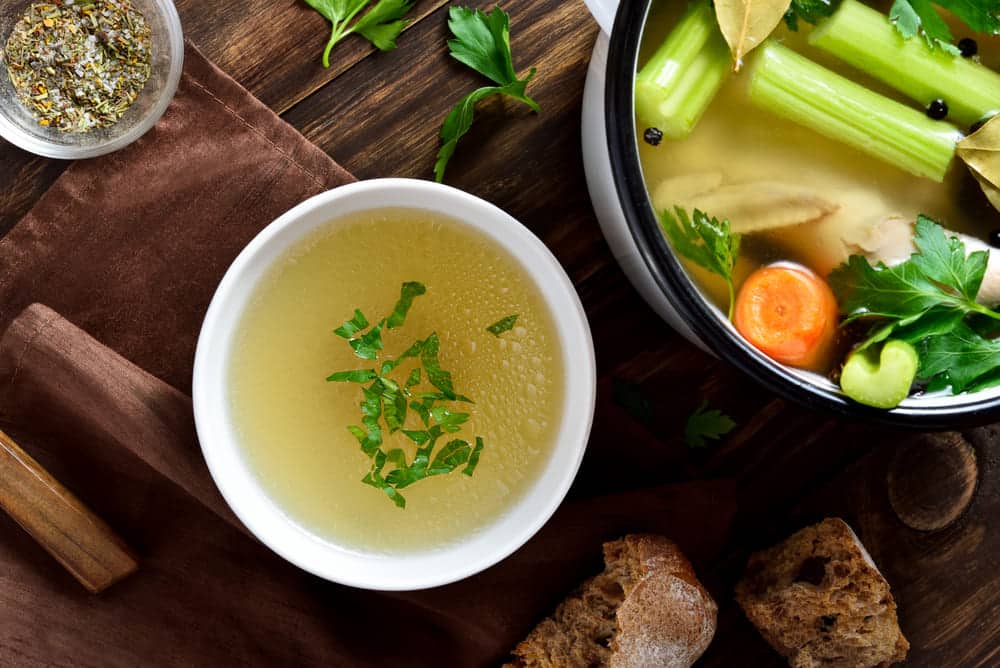
Everyone loves a bit of farm fresh vegies and not only they are great in taste and are healthier than the frozen ones as well, they are also pretty economical.
There are also some delicious dishes that you can prepare with these vegies scraps and that will not only be tasteful and full of nutrition but it will be one of the healthiest things that you can get. It is a healthier alternative to the meat-based stock as well and you cannot get that wrong but there are some things that you cannot put in vegetable stock!
What Is Vegetable Stock?
Basically, vegetable stock is produced by simmering aromatic vegetables in water and that makes it like a soup like dish. The stock is usually made with the onions, carrots and celery as a base but there are also leftover vegetable pieces that can be added to it. While there are no such restrictions on what you can add to the vegetable stock and you can add anything you feel like, there are some of the vegetables that don’t do well with the vegetable stock and here are a few examples.
What Not To Put In Vegetable Stock
1) Beets
Beetroot often known as the beets is something that you should never try putting in your vegetable stock. They have a soft structure mainly that is strongly aromatic and that will be overcoming the taste of all the other vegies.
Not only that, but they have strong color as well that is not optimal to be put in some dish like that. Beets will leave a strong color to the vegetable stock that is going to overcome all the other colors that might be there. The color can also turn to darker shades of red and sometimes black and you wouldn’t want to have that on your vegetable stock.
2) Cabbages
Cabbages like cauliflower or broccoli is something that you should always avoid putting in your vegetable stock. They don’t only have the strong aroma that can overwhelm the whole vegetable stock, but simmering them like that can also cause them to turn bitter at taste and you wouldn’t want that to happen.
So, all the cabbages like turnips, Brussels, rutabagas should be avoided if you are planning on preparing the vegetable stock and don’t want it to turn bitter.
3) Green Beans
Green Beans such as peas or any other beans out there should not be put in the stock either. Preparing stock requires an extensive simmering time and that can hurt your green beans and turn them to squishy that you wouldn’t want to have on your stock.
Not only they will get squishy but the skin will also be peeled off due to the water and that can cause a certain bitterness in taste that will be unpleasant to eat. That is why, you need to keep them away from your vegetable stock and add the right vegetable or leftovers only to have the right taste to it as well along with the health benefits.
4) Potatoes
Potatoes are another thing that you should be avoided in the stock. Potatoes and sweet potatoes have high amounts of starch and they are going to simply break down during the cooking process.
That is obviously not something that you would want to have on your stock as that will be clouding your stock. Corns also have high amount of starch and you should be avoiding them as well to ensure that you don’t end up with a cloudy starch that can hurt the taste and presentation on your vegetable stock.
5) Zucchini
All those vegetables with a soft flesh such as zucchini, cucumber or winter squash don’t do well with the vegetable stock. They are going to not only cloud the stock but they will turn extremely bitter with all that time of cooking that a vegetable stock takes. Simmering these for such long hours can cause your entire vegetable stock to turn bitter and the best thing would be to keep them away from the stock.
6) Green Parts With Leaves
Most of the vegetables like carrots or turnips have their green parts with leaves and they might seem like a good option to be put in the vegetable stock but that is not right. You need to avoid them as they are not only bitter in taste, but they can also turn to be pretty hard to simmer and will cause other vegetables to be undercooked.